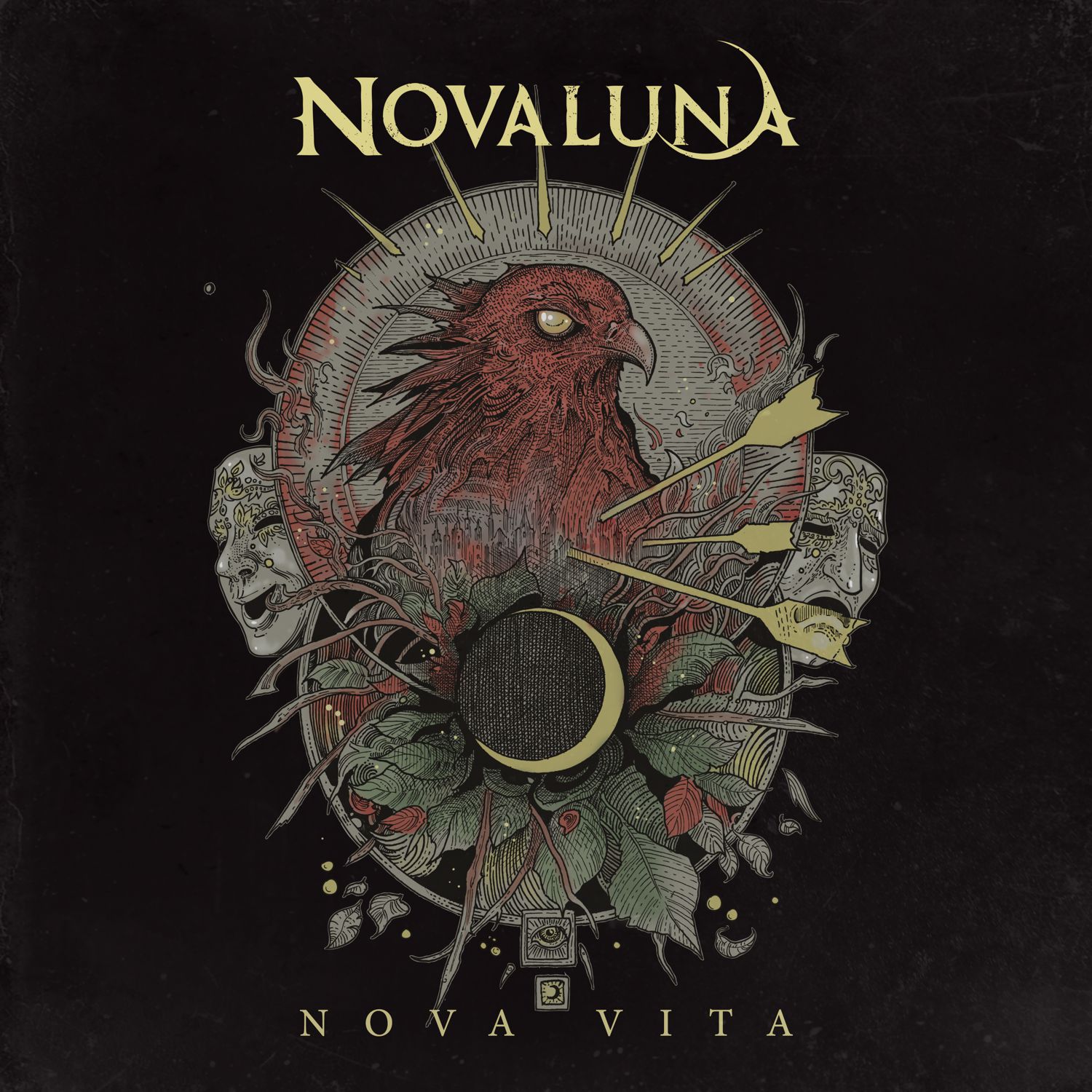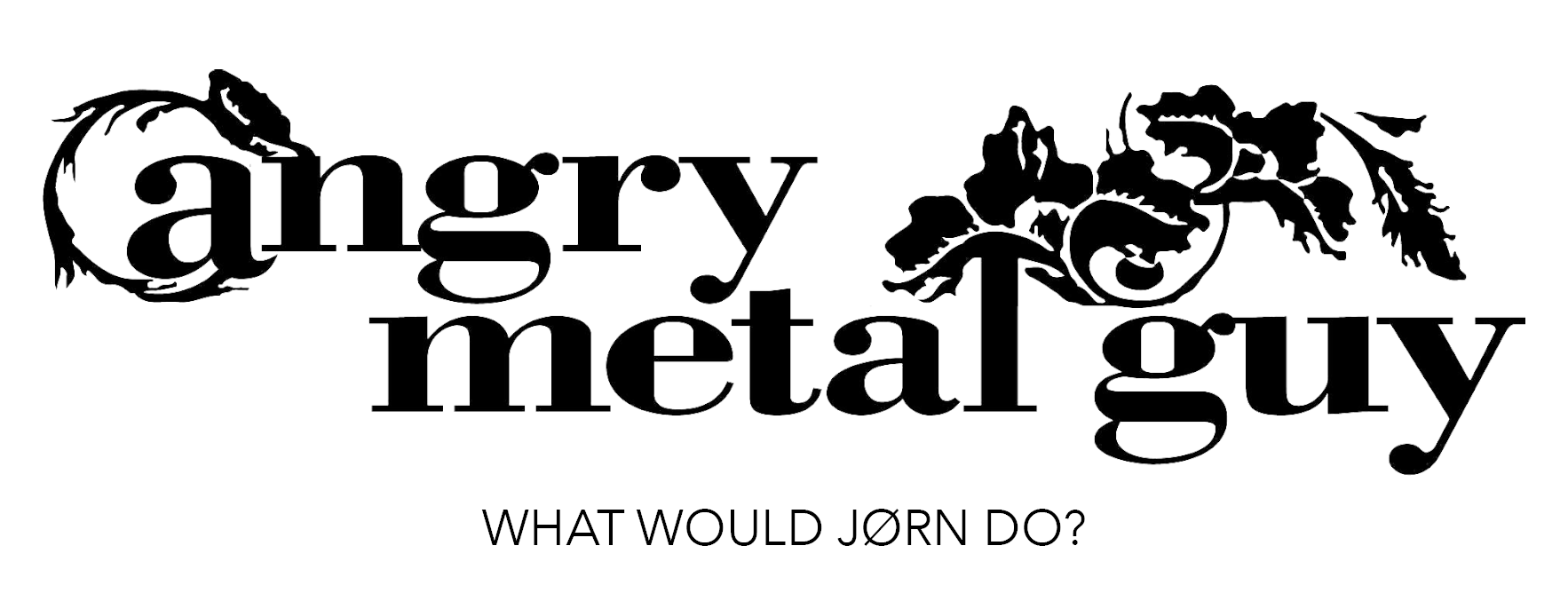 “Prog metal” is a weird label. At times, it feels almost like a catch-all for music that isn’t quite rock and isn’t quite metal. At others, it feels like a way for bands and fans alike to tout minor stylistic differences between one group and the next closest thing. And other times, prog metal is weird. So it’s kind of a gamble, opting to review music under this moniker, as was the case when I first spun Nova Vita, the debut full-length from Italian prog metallers Nova Luna.1 What I discovered was nothing wild, but rather a grounded, enjoyable bout of metal in the vein of Dream Theater, with Symphony X influence and solid heavy rock sensibilities.
“Prog metal” is a weird label. At times, it feels almost like a catch-all for music that isn’t quite rock and isn’t quite metal. At others, it feels like a way for bands and fans alike to tout minor stylistic differences between one group and the next closest thing. And other times, prog metal is weird. So it’s kind of a gamble, opting to review music under this moniker, as was the case when I first spun Nova Vita, the debut full-length from Italian prog metallers Nova Luna.1 What I discovered was nothing wild, but rather a grounded, enjoyable bout of metal in the vein of Dream Theater, with Symphony X influence and solid heavy rock sensibilities.
So there will be no reinventing the wheel here; on the contrary, Nova Vita is a refreshingly straightforward record. Opener “Addicted to Myself” sets the stage for a fun, poppy kind of hard rock, with synths accenting rocking riffs, narrated by Mattia Martin’s heavily accented, charismatic singing. These elements of Nova Luna give their music personality and charm without straying from established formulae; on songs like this one and “Nova Vita,” choruses are the strongest elements of the music, reminding me at times of Blind Guardian in well-constructed vocal melodies that linger in the brain long after the music is done. Furthermore, the songs on this album are short—with ten proper tracks,2 the album doesn’t quite reach forty minutes of length, which is fine for the style—it arrives, does what it’s here for, and then it’s over.
In the promo material for the album, the band suggests that each song is meant to express a particular emotion, which results in an interesting listening experience. Ballads like “World of Truth” and “Cause of my Poetry” notwithstanding, no two songs on Nova Vita sound very much alike, but Nova Luna is consistent enough in their playing styles that it still feels like a cohesive, albeit multifaceted, record. “Save You (This Time)” isn’t my favorite song here, but I love the aggression, just as I appreciate the mid-paced introspection in “Over Machines” (not to mention its killer guitar solo). “Morning Stars” will stand out to any fan of Kamelot’s, as it takes inspiration from the same source as Karma’s ”Forever,”3 even sharing some lyrics—but certainly holding its own against the classic tune.

If there’s a drawback to being straightforward and reliable, it’s that, inevitably, some songs land better than others, and this is no exception, as Nova Vita feels like a front-loaded album. “Black Stained Sun” is a solid example of a song that’s “merely” solid; the soaring backing vocals in the chorus and the hard-hitting nature of the verse riffs gives the impression of a song that’s reaching for something grander than the sum of its parts—it certainly feels like it’s missing something. Similarly, “Without Sorrow” takes inspiration from the 80’s hard rock, but reaches a bit too far, feeling out of place in the company of so much “modern” prog metal. Compared with the catchy choruses and creative compositions from the album’s first half, it’s hard not to feel a bit let down towards the end.
Still, you can do a lot worse than catchy, straightforward, and fun, which is exactly what Nova Luna have given us here. Nova Vita is an enjoyable rocker of an album, an offering of progressive rock, metal, and fun that’s familiar and welcome. If this is the sound of a band exploring every facet of their sound, it’s an encouraging listen. There are some gems here for sure, and I’m looking forward to listening to them further while I wait and see what these guys come up with next.
Rating: 3.0/5.0
DR: 8 | Format Reviewed: 320 kbps mp3
Label: Pride & Joy Music
Websites: facebook.com/NovaLunaBand.Official
Releases Worldwide: May 20th, 2022

















